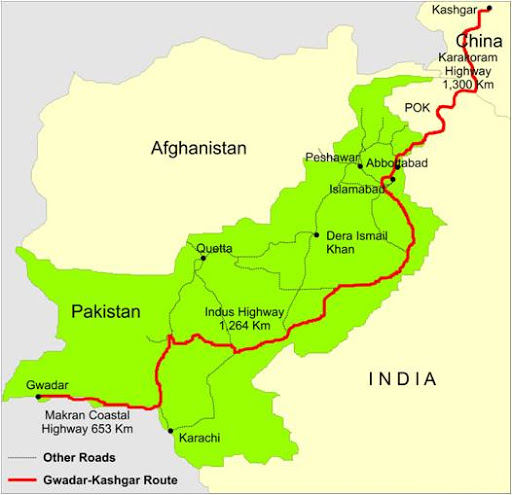International Relations
Azad Pattan: PoK Hydel Project
- 16 Jul 2020
- 4 min read
Why in News
Recently, Pakistan and China have signed an agreement for the 700 MW Azad Pattan hydel power project on the Jhelum river in Sudhnoti district of Pakistan occupied Kashmir (PoK).
- The 1.5-billion USD project is under the China Pakistan Economic Corridor (CPEC).
Key Points
- Description:
- The Azad Pattan project is one of five hydropower schemes on the Jhelum, the other four are Mahl, Kohala, Chakothi Hattian and Karot projects.
- Azad Pattan, Kohala and Karot are being developed under the CPEC framework.
- It is a run-of-the-river scheme with a 90-metre-high dam, and a 3.8 sq km reservoir.
- It will be developed on the ‘Build, Own, Operate, Transfer (BOOT)’ model.
- It is expected to be commissioned by 2024.
- The project will be transferred to the government of Pakistan after 30 years.
- The Azad Pattan project is one of five hydropower schemes on the Jhelum, the other four are Mahl, Kohala, Chakothi Hattian and Karot projects.
- Concerns for India:
- Territorial Integrity: India has protested the construction of dams and other infrastructure in PoK and Gilgit Baltistan, which are territories claimed by it as part of Jammu & Kashmir.
- Earlier India had also objected to the construction of the Diamer-Bhasha dam (on Indus river) in the Gilgit-Baltistan region of the PoK.
- Conflict With China: The signing of the Hydel project comes at a time when India and China have been involved in military conflicts following the Galwan Valley incident in the Ladakh region.
- Through these projects, China and Pakistan have been consolidating their presence in the Indian region.
- Chabahar Rail Project: Recently, Iran along with China has gone ahead with the construction of the Chabahar rail project without India's assistance citing funding delay.
- Chabahar has been considered as India’s strategic response to counter China-Pakistan Economic Corridor.
- Not Based on International Norms: These projects do not follow the principles of openness, transparency and financial responsibility given by the International agencies.
- Security Concerns: China may use its economic power to increase its geopolitical leverage as these projects give a hold to China in the western Indian Ocean with the Gwadar port, located near the strategic Strait of Hormuz.
- The Strait of Hormuz is a vulnerable point for India, which sources more than 60% of its oil supplies from the Middle East.
- Territorial Integrity: India has protested the construction of dams and other infrastructure in PoK and Gilgit Baltistan, which are territories claimed by it as part of Jammu & Kashmir.
China-Pakistan Economic Corridor
- The China-Pakistan Economic Corridor (CPEC) is a part of the One Belt One Road (OBOR), intended to improve infrastructure within Pakistan for better trade with China and to further integrate the countries of the region.
- OBOR has two main components, One Belt - the land-based belt, and One Road refers to the ocean going ‘Maritime Silk Road’, which aims to connect the East Asian economic region with the European economic circle and runs across the continents of Asia, Europe and Africa.
- India has boycotted the Belt and Road Forum organised by China. China’s insistence on establishing the CPEC project through PoK is seen by India as a deliberate disregard of its territorial claims.




